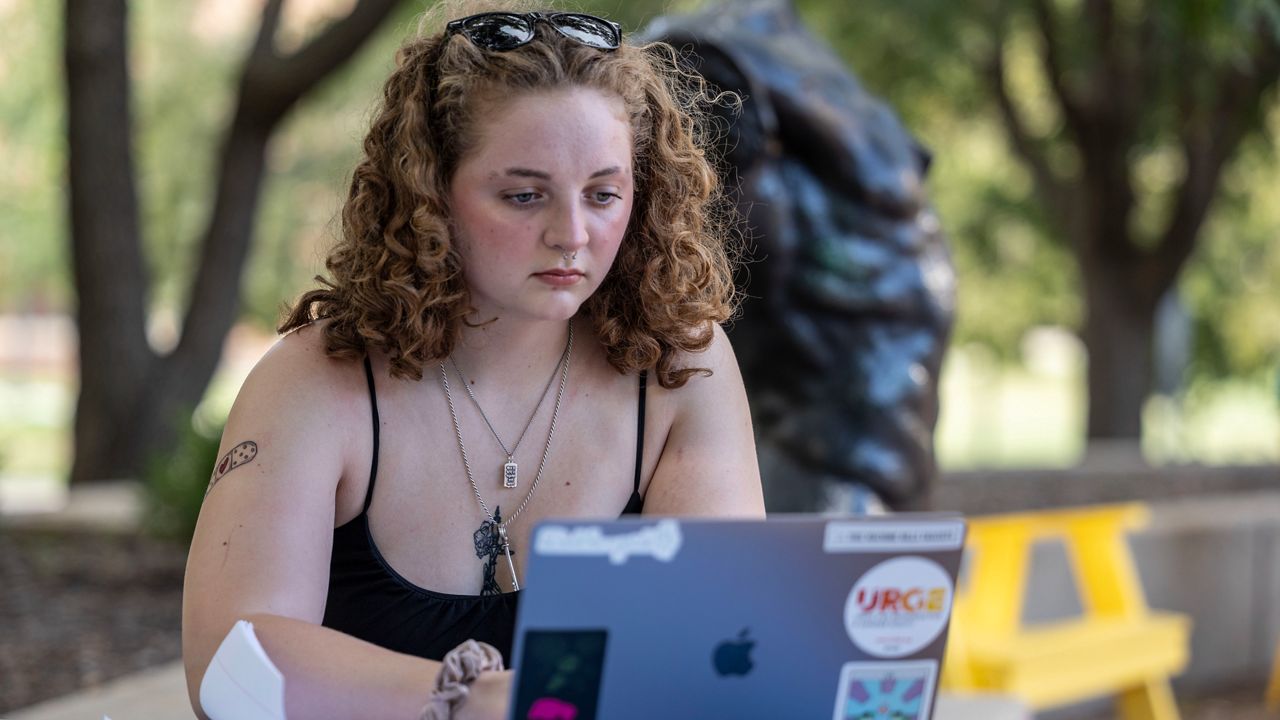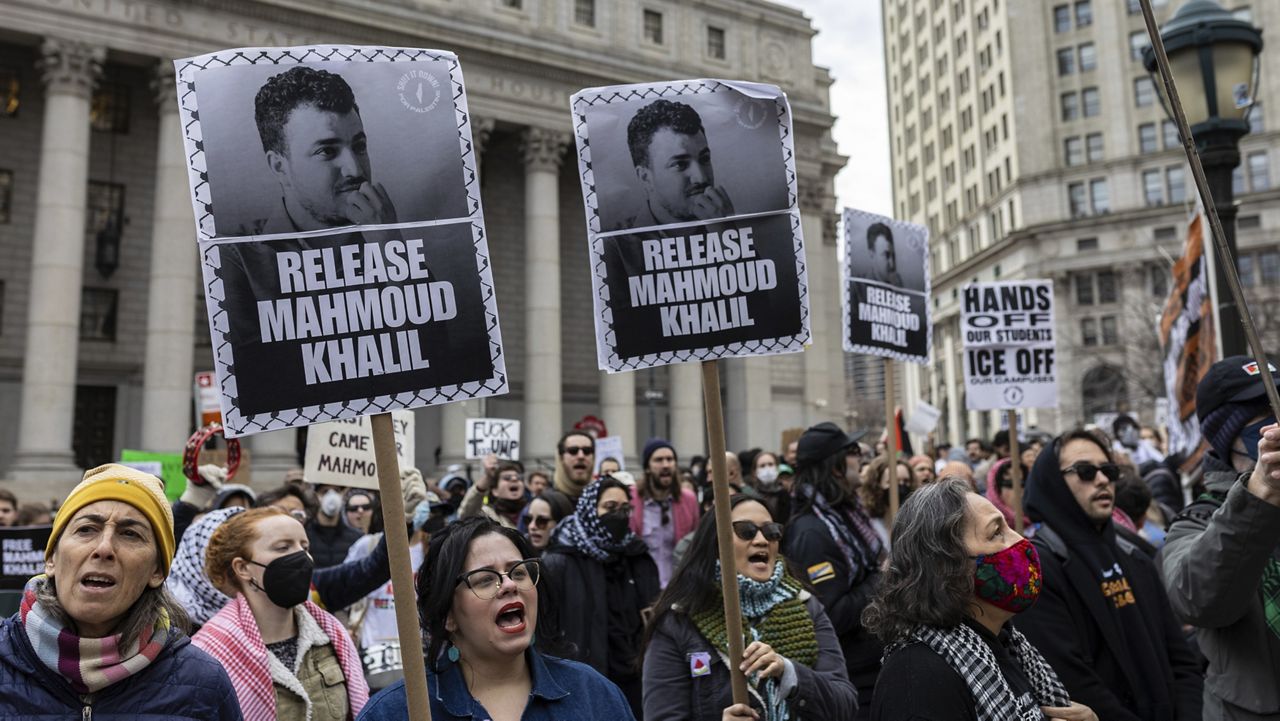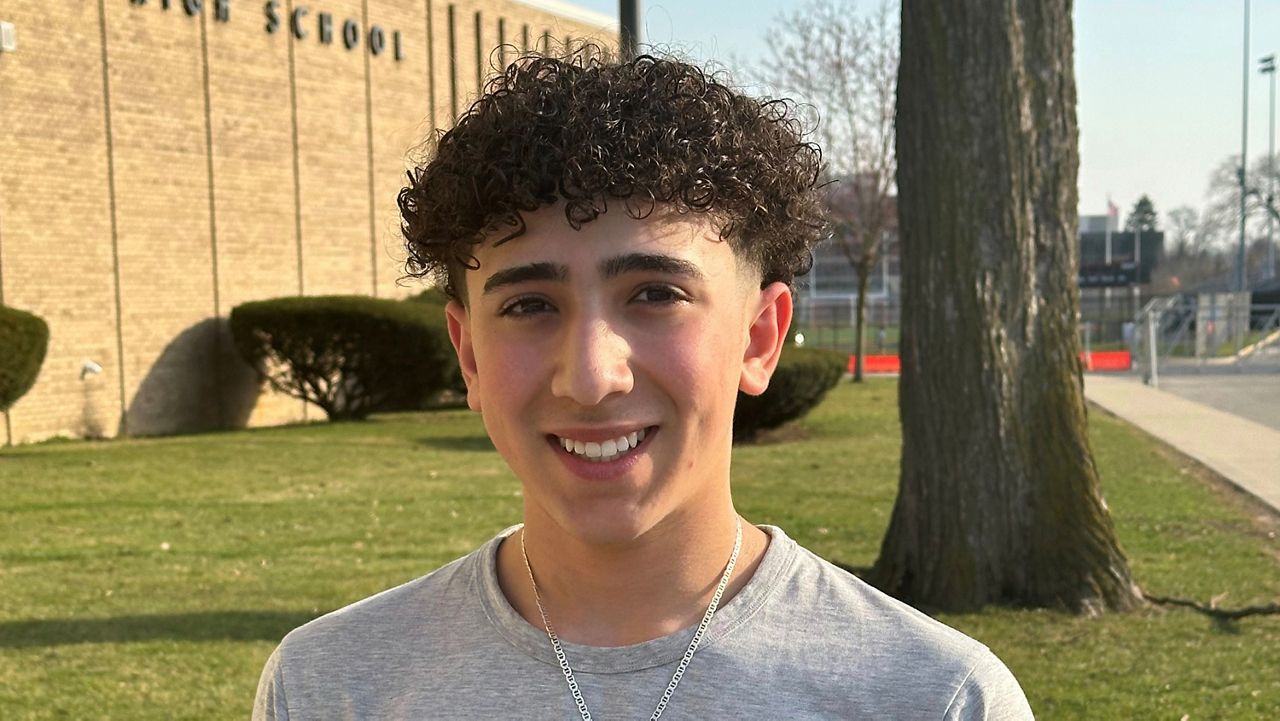In fifth grade, Stella Gage's class watched a video about puberty. In ninth grade, a few sessions of her health class were dedicated to the risks of sexual behaviors.
That was the extent of her sex education in school. At no point was there any content that felt especially relevant to her identity as a queer teenager. To fill the gaps, she turned mostly to social media.
“My parents were mostly absent, my peers were not mature enough, and I didn’t have anyone else to turn to,” said Gage, who is now a sophomore at Wichita State University in Kansas.
Many LGBTQ+ students say they have not felt represented in sex education classes. To learn about their identities and how to build healthy, safe relationships, they often have had to look elsewhere.
As lawmakers in some states limit what can be taught about sex and gender, it will be that much more difficult for those students to come by inclusive material in classrooms.
New laws targeting LGBTQ+ people have been proliferating in GOP-led states. Some elected officials, including candidates for the Republican presidential nomination, have been pushing to remove LGBTQ+ content from classrooms.
Sex education curriculum varies widely. Some groups including Planned Parenthood have called for sex education to be inclusive of LGBTQ+ students, but some states outright forbid such an approach.
The penal code in Texas, for one, still says curriculum developed by the Department of State Health Services must say homosexuality is not acceptable and is a criminal offense, even though such language was deemed unconstitutional by the U.S. Supreme Court in 2003. Attempts in the Legislature to remove that line from state law have failed.
In practice, LGBTQ+ students say they have looked elsewhere for sex education. Some described watching their peers turn to pornography, and others said they watched videos on YouTube about how to tell if someone is gay and how to flirt with people of the same sex.
Gage grew up in Oklahoma before her military family relocated and she spent her eighth and ninth grade years in a U.S. Department of Defense school in the Netherlands. She then finished high school in Kansas, where she began to recognize she wasn’t attracted only to men.
Not seeing a safe outlet at her high school to explore who she was, she went online to research for herself the history of the LGBTQ+ community in the U.S.
“I started to realize there is a huge portion of our history that is conveniently left out. But that history is important to queer youth,” she said. She never really questioned gender or social norms, she said, until she started to learn about discrimination others have faced throughout history. “We have such rigid boxes that we expect people to fit into. If you didn’t fit, you were called slurs. I wasn’t really aware that if you strayed from those norms that people would feel you were attacking their way of life.”
Still, the internet contains vast amounts of false information. Some advocates worry students turning to the internet to fill gaps in sex education will struggle to find their way through the morass.
“Any time you have a political controversy, there is a greater potential for a lot more disinformation to be generated,” said Peter Adams, senior vice president of research and design at the News Literacy Project.
When schools address sexuality, it is often in the context of disease prevention or anti-bullying programs. School can be a difficult place if your identity is seen only in such negative ways, said Tim’m West, a former teacher and now executive director of the LGBTQ Institute at the National Center for Civil and Human Rights in Atlanta. West can relate: He grew up in Arkansas as a queer Black kid and preacher’s son and was constantly made to feel ashamed.
“What if you are a boy in high school that knows you like boys, and you sit in a divided room and listen to a teacher explain how not to have sex with girls. You would be sitting there rolling your eyes, because that is not your issue. But you also haven’t been given any instructions on how to protect yourself should you experiment with a person of the same gender,” West said.
Students need more applicable sex education regardless of their gender identity or expression, said Gage, who volunteers with a youth justice advocacy group and is also president of the Planned Parenthood Generation Action Chapter at Wichita State.
“We all have to make large decisions for ourselves about our sexuality and reproductive health. Those decisions should be grounded in knowledge,” she said.
Growing up in Washington, D.C., Ashton Gerber had more sex education classes than most. But Gerber, who is transgender, said the lessons weren't all that applicable to their experience.
“Even if you can have sex education every day of the year, there is always going to be something that gets left out," said Gerber, who is a student at Tufts University in Massachusetts. Gerber said educators should point students to trusted online resources so they can do their own research.
Not knowing who you are is a horrible feeling many LGBTQ+ students wrestle with, Gage said. But equally horrible is not feeling accepted once you do understand your sexual identity.
“Had I known then what I know now, I would have felt safe and confident coming out sooner,” Gage said. “No one should feel like they don't understand themselves because we are forced to conformity in a world that doesn't care. We can all be inclusive.”






